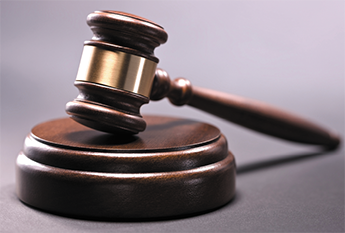2.6 Legal Responsibilities of Pharmacy Personnel
Though all these laws and standards can seem overwhelming, procedures to adhere to them are built into the everyday practices of pharmacy, so the laws need not be difficult to remember and follow. Each facility manager is responsible for ensuring that the correct processes are established and personnel are trained. The pharmacists—who have to make judgments in the filling and dispensing of drugs, counseling patients, and overseeing the work of technicians—have the majority of the burden of liability. Yet all personnel work as a team in a pharmacy and are responsible for the parts they play. As pharmacy technicians shift into greater roles of responsibility, elements of liability shift with them. They must feel confident asking questions when situations or processes seem amiss or neglected to prevent problems.

Serious violations of laws, regulations, or ethics by pharmacy technicians may result in loss of job, suspension or revocation of professional ability to practice, or criminal or civil penalties.
No specific federal definition of the pharmacy technician’s role yet exists, and no uniform definition has been adopted by all states. Rather, the technician’s responsibilities are under constant review and change as states recognize the extending roles of pharmacists and automation and the need to adjust the technician’s role to keep up with the needs and demands of the field, patients, and laws. Technicians can make the difference between life and death for patients in many situations by their conduct, and they always need to keep this idea foremost in their minds as they work.
As a technician-in-training, you should visit the website of your state pharmacy board and talk to your instructors to get to know state-specific statutes and regulations. Some states will test you on them in order for you to be allowed to practice. Other references that are useful in comparing duties from state to state include the following:
Pharmacy Law Digest
Annual NABP Survey of Pharmacy Law
Pharmacy Technician Certification Board website